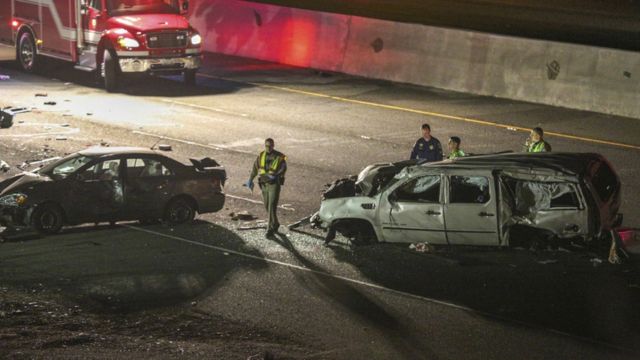Iowa is one of the many states that have taken steps toward changing marijuana laws, with medical marijuana being legalized in 2017 and discussions surrounding recreational use growing in recent years. As marijuana legalization spreads across the U.S., a critical concern has emerged: the potential impact on road safety. Advocates argue that cannabis legalization has several benefits, but opponents are concerned about the possibility of an increase in car accidents, particularly with drivers impaired by marijuana.
As Iowa’s marijuana laws continue to evolve, it is important to understand whether there is a connection between marijuana use and an increase in traffic crashes, and if so, how the state is addressing these concerns. Let’s examine the current state of marijuana use in Iowa and its potential effects on road safety.
The Impact of Marijuana on Driving
Marijuana, like alcohol, can impair a person’s ability to drive safely. It affects coordination, reaction time, judgment, and the ability to process information, which are all crucial to making quick decisions on the road. When marijuana is consumed, tetrahydrocannabinol (THC), the psychoactive component of cannabis, enters the bloodstream and binds to receptors in the brain, affecting areas related to movement, memory, and concentration.
The impairment from marijuana is different from alcohol in several ways. THC can stay in a person’s system for hours or even days after consumption, even if they no longer feel “high.” This creates a unique challenge for law enforcement, as unlike alcohol, which can be tested with breathalyzers to determine blood alcohol concentration (BAC), marijuana testing typically requires blood, urine, or saliva samples, making it harder to pinpoint impairment levels at the time of a traffic stop.
Despite these challenges, marijuana impairment behind the wheel is a serious concern, and law enforcement agencies across the country have begun to focus more attention on detecting and preventing drugged driving.
Examining Iowa’s Marijuana Laws
In Iowa, medical marijuana has been legal since 2017. The state allows qualified patients with certain medical conditions to access cannabis products in regulated dispensaries. The program, however, is relatively restrictive compared to other states, with a limited list of qualifying conditions and strict regulations surrounding THC content. As of now, recreational marijuana remains illegal in Iowa, but there has been increasing discussion about whether to change that.
Although medical marijuana use has been legalized, the potential for increased marijuana consumption remains a topic of concern, especially if recreational use were to follow. The key issue in terms of road safety revolves around the question of whether the use of marijuana by Iowa residents is leading to more impaired driving incidents and car crashes.
Has Marijuana Legalization Led to More Car Accidents in Iowa?
While it’s still early in the process for definitive conclusions, some patterns have emerged in states where marijuana has been legalized. National studies have indicated a slight increase in crashes involving drivers under the influence of marijuana in states that have legalized the drug, particularly when both marijuana and alcohol are involved.
Iowa’s situation is still developing, but some law enforcement officials have expressed concerns about a potential rise in marijuana-related driving incidents, especially with the increase in medical marijuana users and the possibility of future recreational legalization. However, the evidence from Iowa has been mixed, and a definitive rise in car crashes specifically linked to marijuana impairment has not yet been conclusively proven.
A few contributing factors make it challenging to draw a direct correlation between marijuana use and a rise in car crashes in Iowa:
- Lack of Specific Data: While drugged driving incidents are on the rise in many states, it’s often difficult to directly attribute crashes to marijuana alone, as drivers may be impaired by a combination of substances, such as marijuana and alcohol, or other distractions.
- Limited Medical Marijuana Usage: Compared to states with broader medical marijuana programs or where recreational marijuana is legal, Iowa’s medical marijuana program is relatively small. As a result, there hasn’t been a large enough number of users to fully analyze trends in marijuana-related driving incidents.
- Increased Enforcement: In response to concerns about marijuana-impaired driving, Iowa law enforcement agencies have begun implementing more comprehensive drug-impaired driving prevention programs. This includes training officers to recognize signs of impairment from marijuana and increasing drug testing efforts, which could help detect marijuana use and prevent accidents.
What Can Be Done to Address the Concerns?
As marijuana use increases in Iowa, the state’s road safety policies need to evolve to mitigate the potential dangers associated with drugged driving. Here are several strategies that could help reduce the risks:
- Public Education Campaigns: One of the most effective ways to address the issue is through public education. By raising awareness about the dangers of driving under the influence of marijuana, officials can encourage safer driving behaviors. Public service campaigns could emphasize that marijuana impairs driving just like alcohol and that drivers need to be responsible and avoid getting behind the wheel when impaired.
- Improved Drug Testing Methods: As with alcohol, the more effective and accurate testing methods are, the better law enforcement can detect impaired drivers. Iowa could benefit from investing in more advanced tools for testing drivers suspected of being under the influence of marijuana, especially tools that can quickly and accurately determine THC levels.
- Stronger Penalties for Drugged Driving: The state could implement stronger penalties for driving under the influence of marijuana to deter individuals from getting behind the wheel while impaired. Clear and enforced legal limits for THC levels in drivers’ bloodstreams would give law enforcement and the public a clearer understanding of what constitutes marijuana impairment while driving.
- Comprehensive Research: Ongoing research is needed to track the relationship between marijuana legalization and traffic accidents in Iowa. Long-term studies can help the state understand how marijuana use impacts driving safety and whether the increase in marijuana use is directly linked to rising accident rates. This data will help lawmakers and law enforcement make informed decisions regarding public safety and driving laws.
Conclusion
While Iowa’s marijuana laws are still evolving, the potential for marijuana impairment to affect road safety is a real concern. Current data does not show a significant rise in car crashes specifically tied to marijuana use, but it’s important to monitor the situation closely as marijuana consumption increases with the state’s expanding medical marijuana program.
To ensure that Iowa’s roads remain safe, lawmakers, law enforcement, and the public must work together to educate drivers about the dangers of impaired driving, enhance testing methods, and implement measures that promote responsible cannabis use. In the long run, ensuring road safety will be an ongoing balancing act as marijuana use becomes more widely accepted and the state adapts to changing laws.





More Stories
Iowa Marijuana Law and Road Safety: Are Car Crashes on the Rise?
Iowa Marijuana Law and Road Safety: Are Car Crashes on the Rise?
Iowa Marijuana Law and Road Safety: Are Car Crashes on the Rise?